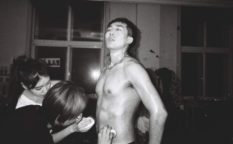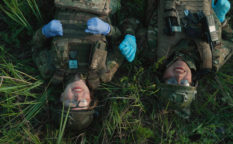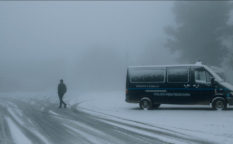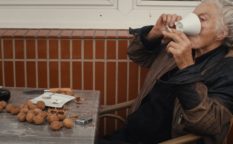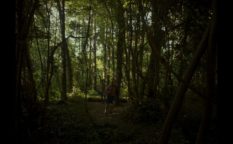Review: All-In (2021)
Crossing Europe
Competition Documentary
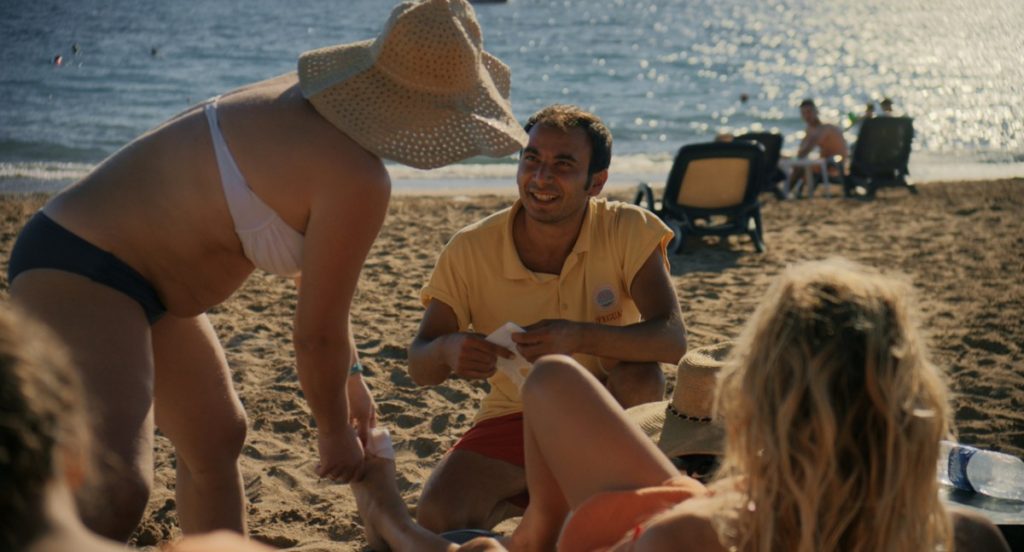
Tourism and capitalism share a substantial connection: those who work hard need to rest “hard”, and the whole industry was created for them. That industry also employs its share of hard workers and creates profits for its owners and shareholders. The key difference between the “regular” and “all-inclusive” tourism is the systemic, impersonal setup of the latter and the implications of the class and even colonial conflict which that kind of structure provides.
It is fairly easy to create a narrative about people from rich countries enjoying their holidays on the beaches of poor countries, while the local population does their best to please them, assuming who the good and who the bad guys are. That kind of approach puts its creator in the position of moral superiority, even authority – above all, the three sides involved in the all-inclusive tourism business: the hotel owners, the hotel employees and the tourists. Belgian filmmaker of Turkish origins Volkan Üce avoids exactly that kind of trap in his observational, deadpan funny documentary All-In by keeping his eyes and ears close to the ground and ranks of working people.
All-In premiered at the virtual edition of CPH DOX and was also screened (virtually) at Hot Docs. We were lucky to see its first physical screening at Crossing Europe, where it was a part of the Documentary Competition.
Üce and his small crew follow the two young men who got their work at the all-inclusive resort ‘Nashira’ somewhere on the south-eastern coast of Turkey. Hakan, 25, is a natural born philosopher who even got admitted to a college, but he instead opted to stay at home and spend his time reading books and watching movies. He sees his lifeguard-work at the resort merely as a step towards greater things, and an opportunity to gather some experience before going to the US to direct his own film. As opposed to Hakan, Ismail, 18, has a simple dream to become a hairdresser somewhere in the West, to meet a pretty girl and marry her, but his elder brother set him up with a job to work under him in the hotel kitchen.
Two guys quickly become close friends and Ismail starts learning a lot about the world (at least theoretically) from Hakan. The filmmaker follows them over the course of one summer season, from April to October (with an epilogue set in the beginning of the next one) as they evolve in different directions. While Hakan gets even more disillusioned with the world, Ismail builds more self-esteem.
By observing them and their interaction with the heavily automatized closed-off world that surrounds them, both from close up and from afar, Üce resists the urge to make it a film about class combat and exploitation, which would be the first association that comes to mind about the subject. Even if his “characters” (and All-In has some of the qualities of a good fiction cinema, while staying faithful to the documentary form ) are not aware of the fact that they all – the employees, the management, the owner and even the tourists are on the same boat here, albeit in different positions – he is. The conflicts that arise are actually more driven by the natures of the protagonists, other employees and the HR manager (who is also quite a character), and not by their formal positions. For instance, Hakan’s biggest “beef” is with his security guard colleague, and Ismail’s with his brother.
The filmmaker also resists the temptation to mock tourists doing silly stuff (there is just one scene of that kind which is too precious to spoil), or to make the film unnecessarily political, given Ismail’s Kurdish heritage. Instead, we get an earnest, clear-eyed, sometimes funny, sometimes bittersweet insight into one of the aspects of the world today and the way it affects All-In’s almost virginal protagonists.
Runtime: 81’
Countries: Belgium, The Netherlands, France
Languages: Turkish, Kurdish, English
Directed by: Volkan Üce
With: Hakan Hoşcan, Ismail Daşdögen
Cinematography by: Joachim Philippe
Editing by: Els Voorspoels
Music by: David Boulter, Darius Timmer
Sound by: Mark Glynne
Sound recording by: Gedeon Depeuw
Produced by: Emmy Oost, Magalie Dierick
Production companies: Cassette for timescapes, HALAL, Little Big Story, Magellan Films, Onomatopee Films
Co-production companies: VRT, BNNVARA, France Televisions
Support by: Flanders Audiovisual Fund (VAF), Netherlands Film Fund, CoBO Fund, Belgian Development Cooperation, Centre du Cinéma et de l’Audiovisuel de la Fédération Wallonie-Bruxelles, Creative Europe MEDIA of the European Union, the Pascal Decroos Fund, PROCIREP société des producteurs, ANGOA, The Tax Shelter of the Belgian federal government
Sales by: Cat&Docs
Distribution by: Dalton Distribution










